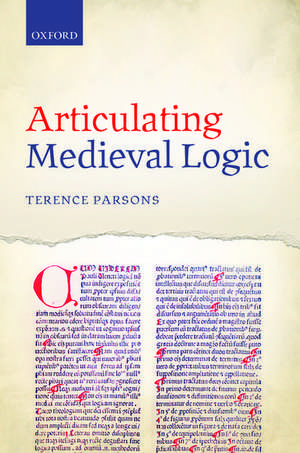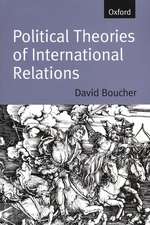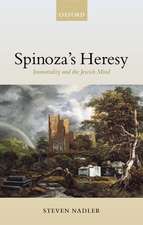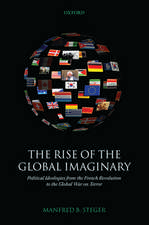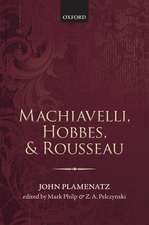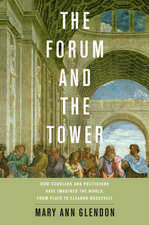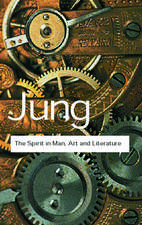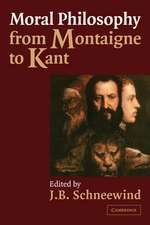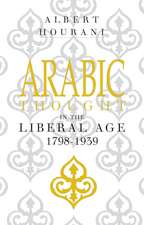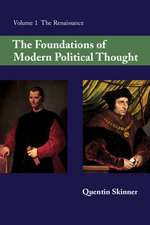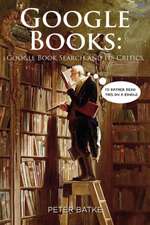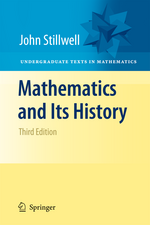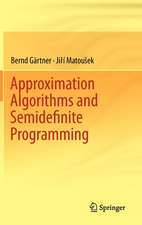Articulating Medieval Logic
Autor Terence Parsonsen Limba Engleză Hardback – 27 feb 2014
Preț: 595.37 lei
Preț vechi: 809.33 lei
-26% Nou
Puncte Express: 893
Preț estimativ în valută:
113.93€ • 119.25$ • 94.82£
113.93€ • 119.25$ • 94.82£
Carte tipărită la comandă
Livrare economică 19-25 martie
Preluare comenzi: 021 569.72.76
Specificații
ISBN-13: 9780199688845
ISBN-10: 0199688842
Pagini: 346
Dimensiuni: 162 x 240 x 31 mm
Greutate: 0.68 kg
Editura: OUP OXFORD
Colecția OUP Oxford
Locul publicării:Oxford, United Kingdom
ISBN-10: 0199688842
Pagini: 346
Dimensiuni: 162 x 240 x 31 mm
Greutate: 0.68 kg
Editura: OUP OXFORD
Colecția OUP Oxford
Locul publicării:Oxford, United Kingdom
Recenzii
It's a book that I found admirable for the scope of its accomplishment, and a book I came away from reading with a deeper understanding of the complexities and sophistication of certain aspects of medieval logic.
This is a very exciting book that makes some bold claims about the power of medieval logic ... there is enough in this rich volume to inspire future researchers to adapt medieval insights to further aspects of the rich logic of natural language.
This book is a fine contribution to the growing literature on medieval logic. It is shaped by a modern agenda: to determine how well the elaborate medieval logical problem-solving machinery can be understood in terms of modern logic and linguistics and how well the medieval system measures up with respect to its expressive potential, i.e., how many of the inferences and patterns of reasoning we are interested in can be captured using the resources of these systems and how many of the decisions about truth and validity these systems turn out can be shown to follow coherently from the basic principles of the system. . . . Parsons has succeeded in giving a unified account of a large segment of medieval logic, and one that allows an assessment of the resources of this method of doing logic
The invention of Linguish is a virtuoso achievement. The book maintains a high level of creative thinking throughout its length. It is a pleasure to read, partly because it is written with simple lucidity, and partly because it is beautifully laid out. There are helpful exercises along the way for the interested reader. The book will surely stimulate much further research on applying contemporary linguistic theory to the reconstruction of medieval
logic
This is a very exciting book that makes some bold claims about the power of medieval logic ... there is enough in this rich volume to inspire future researchers to adapt medieval insights to further aspects of the rich logic of natural language.
This book is a fine contribution to the growing literature on medieval logic. It is shaped by a modern agenda: to determine how well the elaborate medieval logical problem-solving machinery can be understood in terms of modern logic and linguistics and how well the medieval system measures up with respect to its expressive potential, i.e., how many of the inferences and patterns of reasoning we are interested in can be captured using the resources of these systems and how many of the decisions about truth and validity these systems turn out can be shown to follow coherently from the basic principles of the system. . . . Parsons has succeeded in giving a unified account of a large segment of medieval logic, and one that allows an assessment of the resources of this method of doing logic
The invention of Linguish is a virtuoso achievement. The book maintains a high level of creative thinking throughout its length. It is a pleasure to read, partly because it is written with simple lucidity, and partly because it is beautifully laid out. There are helpful exercises along the way for the interested reader. The book will surely stimulate much further research on applying contemporary linguistic theory to the reconstruction of medieval
logic
Notă biografică
Terence Parsons was born and raised in Endicott, New York. He attended the University of Rochester as a physics major, receiving a BA degree. He received a PhD in Philosophy from Stanford University. He was a full time faculty member at the University of Illinois at Chicago from 1965 to 1972, at the University of Massachusetts at Amherst from 1972 to 1979, at the University of California at Irvine from 1979 to 2000, and at the University of California at Los Angeles from 2000 to 2012. He also visited briefly at the University of California at Berkeley and the University of Pittsburgh.
